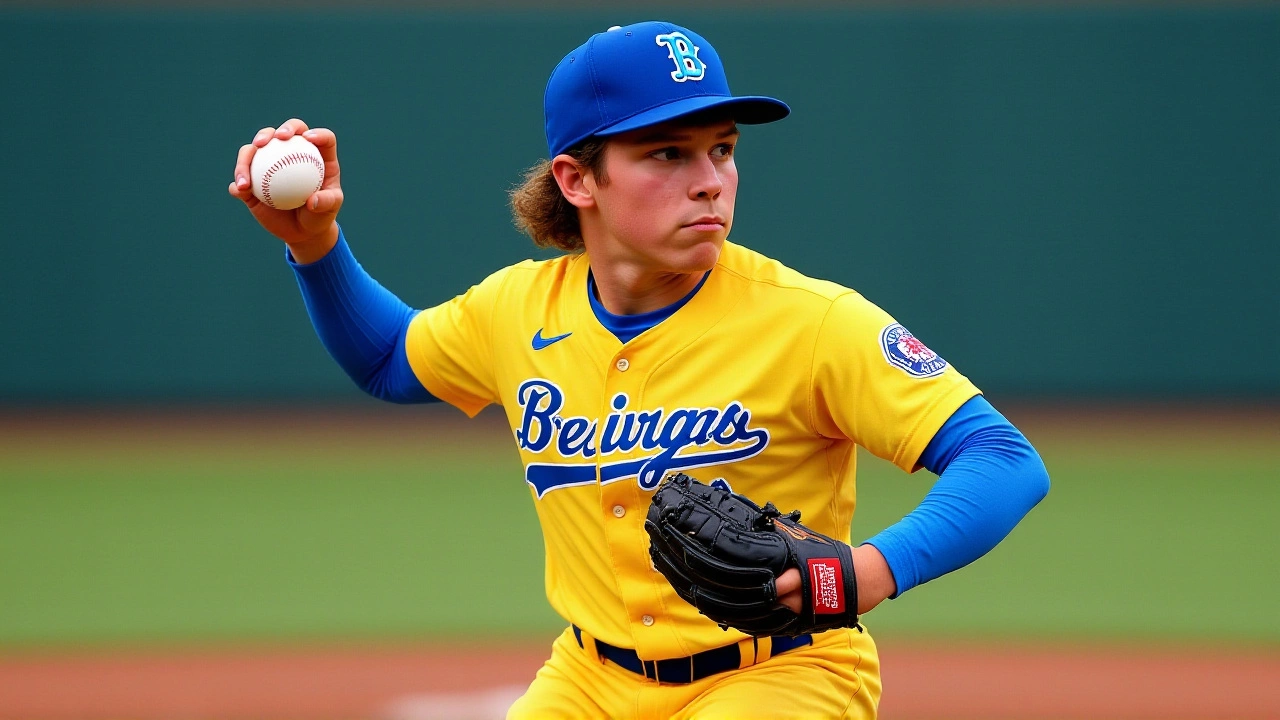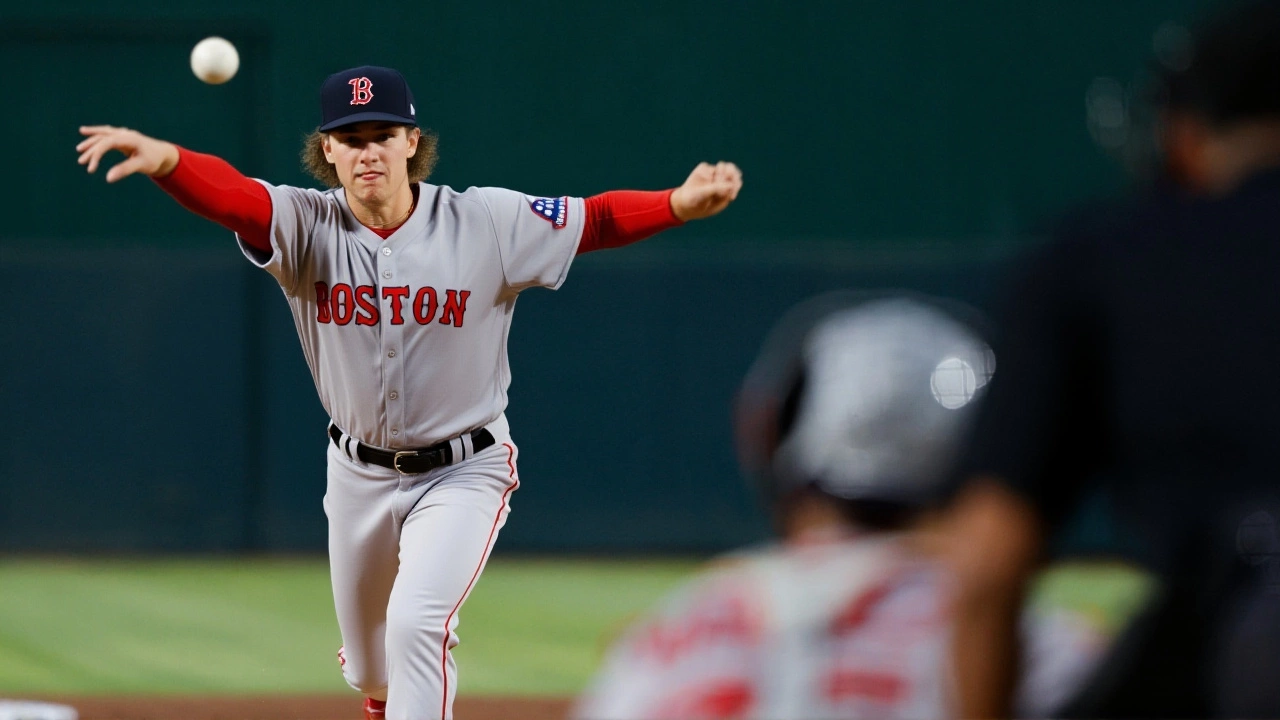When Cam Schlittler, the 24‑year‑old right‑hander for the New York Yankees, steps onto the mound at Yankee Stadium on Thursday night, October 2, 2025, baseball history will be written in real time. Opposite him stands Connelly Early, a 23‑year‑old left‑hander for the Boston Red Sox. Both are rookies, both have fewer than 15 career appearances, and both will be fighting for a chance to stay alive in the American League wild card saga.
Background: A rivalry rewired by two novices
It isn’t every day that the storied rivalry between the Yankees and the Red Sox is decided by two pitchers who have barely tasted the big‑league grind. In fact, this Game 3 will be the first postseason contest ever where each starter is making his 15th career appearance or fewer, when you count regular‑season and playoff outings combined. That statistic alone makes the matchup a footnote in the annals of baseball, but the human stories behind the numbers add a layer of drama that feels more like a Hollywood script than a regular season game.
Cam Schlittler: From Fenway fanatic to Yankee starter
Schlittler grew up in Walpole, Massachusetts, just a 20‑minute drive from Fenway Park. His family, a self‑described “die‑hard Red Sox household,” filled his childhood with Sox caps and late‑night game replays. Yet, on July 9, 2025, the Yankees selected him in the June draft, turning the kid who once cheered on Mookie Betts into a teammate of Aaron Judge.
After a steady climb through the minors, Schlittler earned his first major‑league start in early August. He finished the regular season with 14 starts, a sparkling 2.96 ERA, and a fastball that touched the mid‑90s while his secondary mix—curve, slider, changeup—kept hitters guessing. Manager Aaron Boone praised him as “fearless, armed with high‑octane stuff and a feel for his off‑speed pitches.” The Yankees’ decision to trust him in Game 3 reflects that confidence: "You never know how a game is going to unfold. But Cam's the guy to get that ball in Game 3," Boone said on Monday.
Connelly Early: A fast‑track ascent born of necessity
Meanwhile, Early’s path was less about choice and more about circumstance. A top‑ranked prospect—MLB Pipeline lists him as Boston’s No. 6 farmhand—he spent most of 2025 polishing his craft in Triple‑A. By September, Boston’s rotation was a disaster zone: injuries to Dustin May, Kutter Crawford, Tanner Houck, and even veteran Walker Buehler left the team scrambling.
When May’s elbow gave out just before the trade deadline, the Red Sox turned to Early. He made his MLB debut on September 9 against the Oakland Athletics, striking out 11 in five innings while allowing only six baserunners. Four more starts later, his stats read 1‑2 with a 2.33 ERA across 19⅓ innings. Yet, despite the solid numbers, he was still a rookie with only his fifth career appearance heading into the decisive playoff game.
Game 3 Stakes: A winner‑take‑all showdown
The series is tied 1‑1, which means Thursday’s game is do‑or‑die for both clubs. A win propels the victor into the AL Division Series; a loss ends the season at the very moment the crowd starts chanting “Let’s go Yankees!” or “Go Sox!” in equal measure.
From a tactical angle, the Yankees have a subtle advantage. Their first two starters—left‑handers Max Fried and Carlos Rodón—were set up to neutralize the Red Sox’s left‑handed heavy lineup. Schlittler, a right‑hander, offers a contrasting look that could disrupt Boston’s timing. Alex Cora, the Red Sox skipper, admitted the challenge: "Obviously it is going to be loud here. Two rookies, Game 3, Wild Card, Yankees‑Red Sox. Imagine that? It should be a fun night."
Both benches have depth. The Yankees list pitchers Will Warren and Luis Gil as possible swing‑men, though they aren’t on the official wild‑card roster yet. Boone’s mantra—"confident with any of our five starters"—suggests the team could pivot if Schlittler falters early.

Managerial chess: Boone vs. Cora
Boone’s decision to go with Schlittler was partly a gamble and partly a statement of faith. After a dominant seven‑scoreless‑inning performance against Baltimore on the June 30 AL East title day, Schlittler displayed the poise that usually belongs to veterans. "He’s got a fastball that rides the zone and a slider that breaks late," Boone elaborated during the pre‑game press conference.
Cora, on the other hand, had to juggle a rotation that had been decimated by injuries all season. With Lucas Giolito nursing elbow discomfort and out of the wild‑card roster, Early was the best available arm, even if his experience is limited. "We’re trusting the kid because he earned it," Cora said, nodding to Early’s September surge.
Broader implications: What this matchup says about baseball’s future
Beyond the immediate drama, the duel highlights a growing trend: teams are leaning more heavily on young, analytically‑produced arms when injuries strike. The Red Sox’s rotation, once anchored by seasoned arms, now looks like a revolving door of prospects. The Yankees, while historically deep, are also betting on a pitcher who grew up a Sox fan—a reminder that loyalty in baseball is increasingly fluid.
If Schlittler earns the win, the narrative will shift to “the kid who crossed the rivalry line and helped the Yankees advance.” If Early pulls off the upset, he could become a cornerstone of Boston’s rotation for years to come, proving that adversity can fast‑track a prospect into a leading role.
What’s next after Game 3?
Should the Yankees prevail, they’ll likely face the AL East champion—either the Toronto Blue Jays or the Baltimore Orioles—in the Division Series. For the Red Sox, a loss would close the chapter on a season that began with lofty expectations, a massive payroll, and a lingering question: can a roster built on big contracts survive a cascade of injuries?
Either way, Thursday’s showdown will be remembered not just for the outcome but for the storybook quality of two rookie pitchers writing their own page in baseball lore.
Frequently Asked Questions
How does this matchup affect the Yankees' postseason chances?
If Cam Schlittler earns the win, the Yankees move on to the AL Division Series, keeping their deep roster intact and preserving the momentum built from their regular‑season surge. A victory also validates Boone’s trust in youthful talent, potentially influencing future roster decisions.
What does Connelly Early’s start mean for the Red Sox’s rotation?
Early’s performance could accelerate his promotion from a stop‑gap arm to a regular starter. A strong outing would give Cora a viable option for the next season, easing the burden on aging pitchers and reducing the need for costly mid‑season acquisitions.
Why is this the first postseason game with two pitchers under 15 career appearances?
In the modern era, teams usually reserve postseason starts for veterans with proven track records. Injuries to key starters on both clubs forced the Yankees and Red Sox to tap into their youngest arms, creating a statistical first that underscores how deep injuries can reshape even the most high‑profile series.
What historical precedents exist for rookies facing each other in high‑stakes games?
The closest comparison is the 2015 World Series Game 7, where rookie starter Chris Sale (though not a rookie that year) faced a veteran. True rookie‑versus‑rookie duels in elimination games are extremely rare, making this 2025 meeting a unique footnote in MLB history.
How might this game influence future scouting of local talent?
Schlittler’s leap from Red Sox fan to Yankees starter showcases that regional loyalty is less relevant than talent evaluation. Scouts may place greater emphasis on performance metrics rather than geographic affiliations, especially as teams look for versatile arms that can thrive under pressure.
